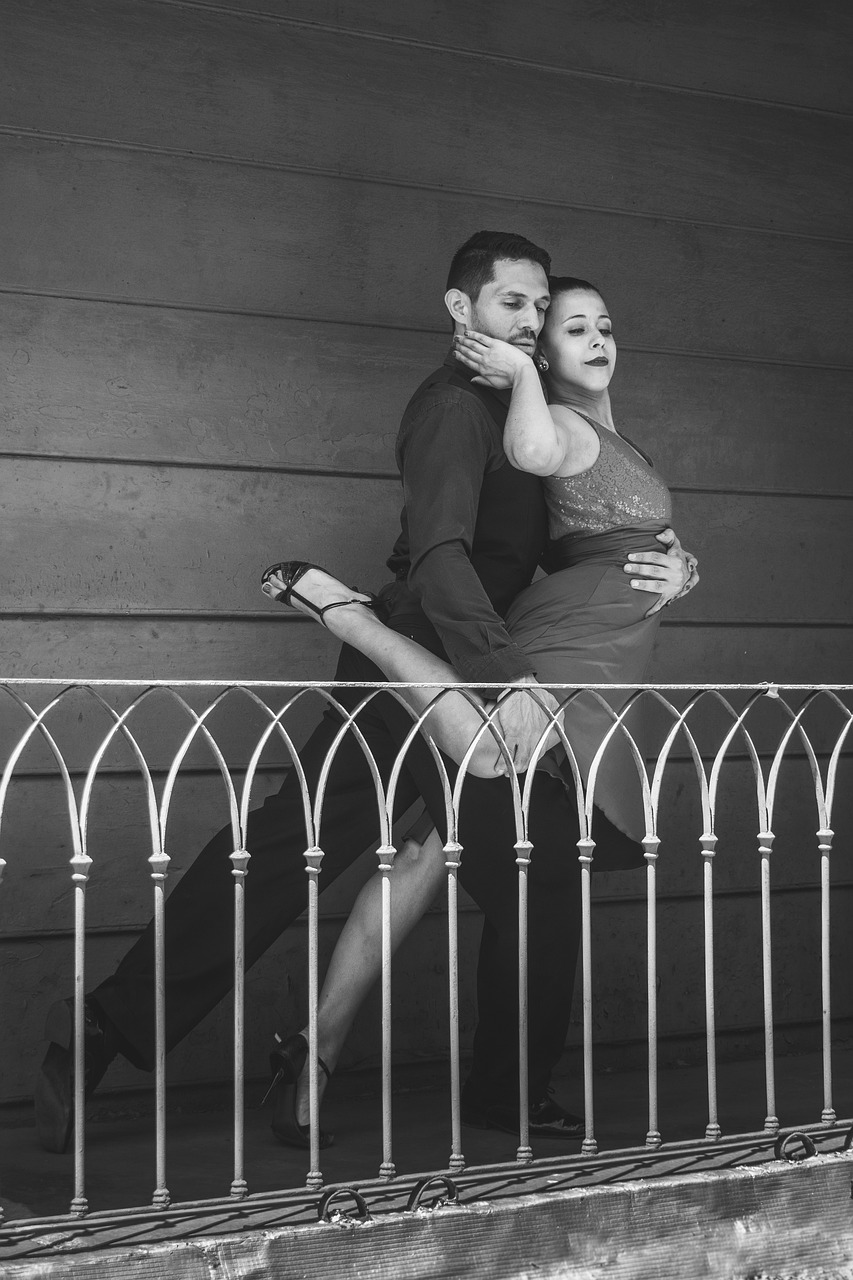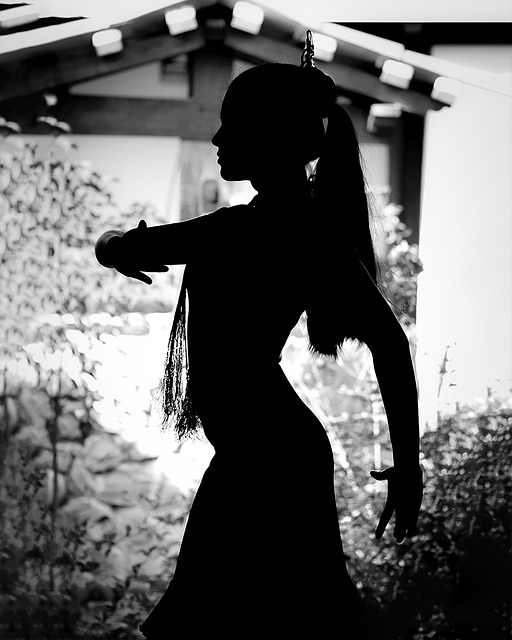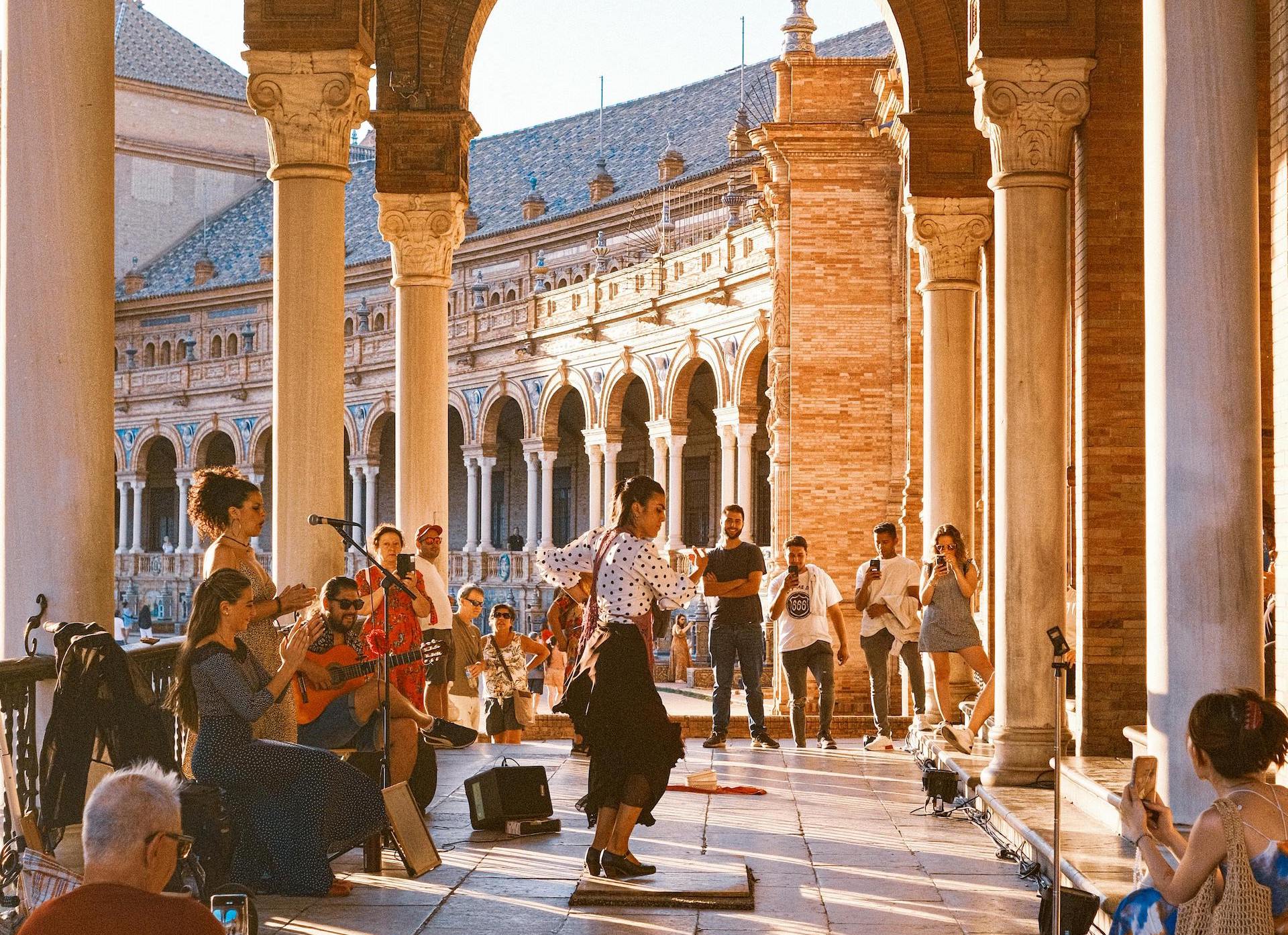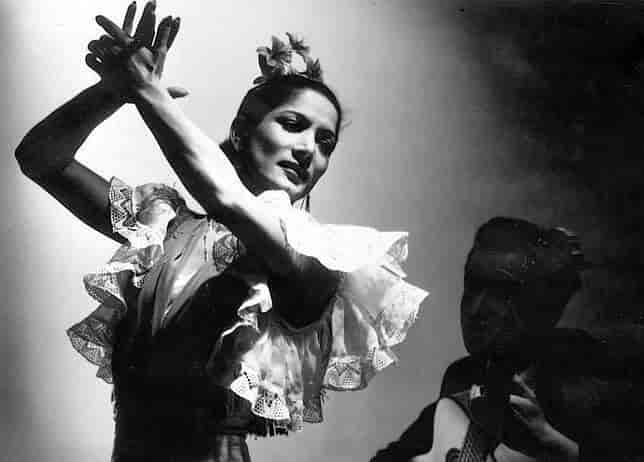After the fall (ice pack, bruised pride) and those June detours—Sitges on a Thursday, Lindy hop in Valencia, the “what have I done” of booking my first Barcelona event—I promised myself I wouldn’t make a comeback post. No violins, no phoenix. Just shoes, tape, and a floor that doesn’t care.
I re-laced the gatos like I was trying not to wake a baby. New elastics, fresh nails in the right shoe (toe plate had started talking back), a mean strip of zinc oxide around the ankle I sprained when the stage shrugged me off in August. I still have the photo of the bruise somewhere on my phone. It looks like a storm map.
Soundcheck at six. Empty hall, chairs stacked, a cleaner who nodded like he knows more about life than all of us and is correct. I tapped once—too hard. The engineer winced like I’d just said an ex’s name. “Normal voice, please.” Right. Marcaje to find the room. Heel, toe, hush. The floor was honest: not dead, not glass, something in between, with a soft growl under the ball of the foot—like it wanted a conversation, not a fight.
I promised the ankle: no heroics, no long escobilla, no sudden pride. Two llamadas to test the brakes. I’ve danced whole shows on a worse bargain.
Backstage had the usual carnival smell—hairspray, wood, cold coffee, a plastic bag of grapes that someone would forget. My dress felt heavier than last spring. Maybe I’m lighter. Maybe I’m lying. I stretched the way the physio showed me, the boring way that works. Breathe, point, flex, hold. I could hear the guitarist warming up on the other side: that same climb he does when he’s checking the top string won’t die on him. He calls it “counting teeth.”
Doors at seven-thirty. The city did that golden thing it does around Passeig de Sant Joan where everyone looks like they’re in a film about walking. People came in smiling the way audiences smile when their day has been long and they’ve decided the night will fix it. Flamenco is built to be that promise and also built to break it. You sing the bruise until it gives you your body back. That’s the job.
I went on first because I asked to. If I waited through a singer’s half hour, my head would start writing essays. I need short problems: step, breath, look up. The opening tientos–tangos was simple on purpose—big sleeves, small feet. I kept the spine long and the ankle inside a polite box. It felt like holding a full glass while someone tells a joke. The audience did the little ripple at the first llamada (thank you, whoever clapped on two and four), and I didn’t chase it. I let the guitar lead me like a slow apology.
Second piece, seguiriyas pared down to its bones. No stubbornness, no trying to prove I can still turn like a kid who hasn’t paid rent. I stood still longer than usual and let the singer cut the air to ribbons. He did. I moved only when the room begged for floor, and even then I kept the weight under the belts. Heelwork like writing my name small on a form that doesn’t give you enough boxes.
The ankle sent two little warnings and then shut up. I took both seriously. Change of angle, lower centre. I could feel the stage thinking about accepting me. Stages do not forgive; they forget you, which is different and better.
Mid-show a girl at the aisle—eight? nine?—started copying my hands. Wide eyes, palms like birds. Her mum caught me noticing and mouthed sorry. No, I mouthed back, keep her. It made my chest go strange, the decent kind.
I skipped the long escobilla I had planned because the guitar’s B string went sulky and I am not a monster. We pivoted into bulerías because everyone loves to pretend we’re spontaneous. (We are; we also practise being spontaneous.) I kept the compás tight and the phrases short, ankle inside the guardrail. Sweat hit my eyes and tasted like old salt. That’s when I knew I was back—not from applause, but from the extremely unromantic sting of sweat and one rogue hairpin digging into my scalp like a moral.
After, people said the usual small kindnesses and one man told me he’d never seen flamenco “up close like that,” which is funny because we were on a stage and he was in row five. Close is a decision. He made it. I’m grateful.
Backstage the cleaner had finished and the hall smelled like mopped lemon and dust. I took the tape off slowly, the way you lift a bandage when you don’t want to know. Skin came with it a little. I said sorry to no one and yes to water and sat on the floor because chairs felt dishonest.
What I will admit: I was scared. Not of pain. Of being medium. Of coming back and finding out the thing was gone, that the fall had knocked a door shut I’d always relied on, that my body and I were done negotiating. Turns out we’re still talking. Maybe softer. Maybe better.
On the walk home I stopped at the late bakery and bought the kind of bread that leaves powder on your fingers. The night was loud in the way Barcelona gets loud without trying, scooters and plates and someone laughing three blocks away. I thought about all the articles I’ve written this year—origins, myths, why flamenco is and isn’t a national symbol, the global fusions that make purists roll their eyes—and none of them felt as true as the tiny click my ankle made at the last cierre before the lights went black. Words help. Feet tell the truth.
I won’t call this a comeback. That’s for movies and egos. It was a night with shoes and tape and a floor that did not throw me off. I’ll take that. Tomorrow I’ll ice, and then I’ll teach, and then I’ll sit on the studio stairs and let some kid with too much hair ask me how to make their hands say something. I’ll tell them what la tata told me when I was the one with the knees and the mouth: don’t reach. Listen. The floor will tell you when it wants weight. And if it doesn’t? Stand still. Let the song work on you first.



